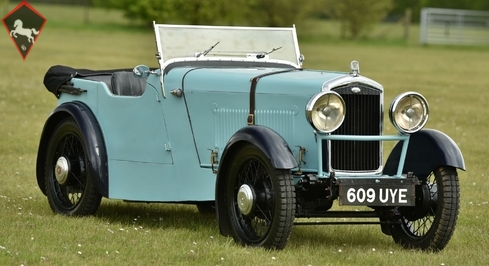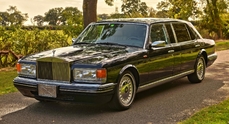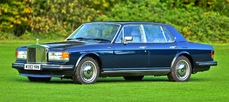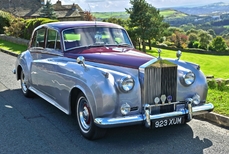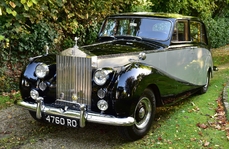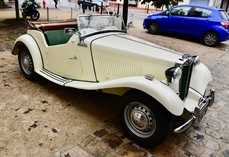Wolseley Hornet 1930
General description :
1931 Wolseley Hornet
Chassis number: 4910CF3
Registration number: 609UYE Originally BYM722
An original Abbot bodied 6 cylinder Wolesley Hornet. The car has had a mechanical restoration by the previous owner & old school type engineer resulting in a car in superb mechanical condition.
The paint is pale blue over navy wings & is in fine order being of recent origin. The car is reputed to be the 500 mile works Brooklands car raced in 1931. The car as lore has it was bought from the team in 1931 & registered on a 1931 number. When the car was bare metalled prior to paint, the original team colours were found underneath along with traces of the race number.
The car was purchased by the current owner from the estate of the deceased previous owner who had been in the process of restoring it. The anecdotal history came from his widow.
The interior of the car is black thoughout & a brand new black hood has just been fitted. The car sits on wire wheels shod with Blockley tyres. Perfrmance is surprisingly good from the little 6 cylinder engine. The car is of course eligible for a wide assortment of period events & hill climbs etc.
http://www.vintagerollsroycecars.com/sales/835/1931-wolseley-hornet/
1930 Wolseley Hornet is listed sold on ClassicDigest in Grays by Vintage Prestige for £7500.
Car Facts
Car type : Car Make : Wolseley Model : Hornet Engine size : 0.0 Model Year : 1930 Sub type : Pick up Location : Essex
Sold
Seller Information
Sold
Other cars listed for sale by this dealer
About Wolseley
The Wolseley Company has a rich history in the automotive industry, known for producing quality vehicles and eventually becoming part of badge engineering initiatives. Here's an overview of Wolseley's story:Early Years:
Founding: The Wolseley Company was founded by Herbert Austin in 1901. Initially, it specialized in manufacturing bicycles before transitioning into automobile production.
Innovations: Wolseley was known for its engineering innovations, producing cars with notable advancements for their time, including the first British car to have a fully enclosed body.
Growth and Success:
Expansion: Wolseley expanded rapidly during the early 20th century, gaining a reputation for quality and reliability. Their cars were popular among the upper-middle class and gained recognition in various international markets.
Motorsport Success: Wolseley had success in motorsport events, further enhancing its reputation for performance and reliability.
Badge Engineering:
BMC Merger: In the mid-20th century, Wolseley became part of the British Motor Corporation (BMC), which led to the concept of badge engineering—producing different models under various brand names within the same company.
Wolseley Mini:
Mini Variants: As part of the BMC, Wolseley released its version of the classic Mini, known as the Wolseley Hornet and the more luxurious Wolseley Elf.
Distinctive Design: The Wolseley Mini variants had a more upscale appearance compared to the standard Mini, featuring additional chrome trim, a different grille, and a more refined interior.
Later Years and Decline:
Integration into British Leyland: In 1968, BMC merged with Leyland Motors to form British Leyland. Wolseley cars were still produced, but the brand lost some of its distinctiveness due to shared platforms and components among various badge-engineered models within British Leyland.
Decline: Over time, the Wolseley brand lost its individual identity as badge engineering became more prevalent within British Leyland. The company faced challenges due to quality control issues, labor disputes, and market changes.
Legacy:
Contributions: Wolseley made significant contributions to the automotive industry, especially in the early 20th century, with its innovative designs and quality vehicles.
Badge Engineering Era: While the Wolseley Mini variants added a touch of elegance to the classic Mini design, the brand's significance diminished as it became part of the larger badge-engineered product line within British Leyland.
The Wolseley nameplate eventually disappeared in the 1970s as British Leyland rationalized its brands, and the company shifted focus towards other marques within its portfolio. Despite its decline, Wolseley remains a part of automotive history for its contributions and its role within the badge engineering initiatives of British Leyland.
